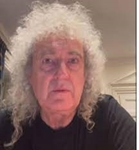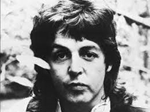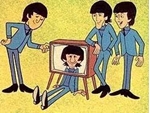- Register
- Log in to Tune-In
- Wishlist (0)
-
Shopping cart
(0)
You have no items in your shopping cart.
Beatles News

Inspiration can hit when you least expect it, and for Paul McCartney it came in the form of mishearing one of his road crew members while on tour with The Beatles. In a recent episode of his iHeartRadio podcast Paul McCartney: A Life in Lyrics, Macca revealed that he came up with the title for the band's iconic 1967 Sgt. Pepper's Lonely Hearts Club Band after a member of his crew asked him for salt and pepper.
“I was with our roadie Mal [Evans], a big bear of a man,” he recalled. “I was coming back on the plane, and he said, ‘Will you pass the salt and pepper?’ And I misheard him. I said, ‘What? Sgt. Pepper?’ He said, ‘No, salt and pepper.’ And I always returned to one of the things about the Beatles, and me and John [Lennon], was that we noticed accidents.”
In each episode of the podcast, McCartney talks in depth about specific songs and recently spoke about the real reason he wrote "Hey Jude," which was penned for John Lennon's oldest son Julian after John and his first wife Cynthia divorced.
Source: Katrina Nattress/litefm.iheart.com

As Beatlemania swept through the Western World, the music of Lennon & McCartney pivoted at the end of 1964. The acoustic guitars of “No Reply,” “I’ll Follow the Sun,” and “I Don’t Want to Spoil the Party” replaced the electric sounds on “She Loves You,” “Please Please Me,” and “I Want to Hold Your Hand.” This was a time before they found their footing with folk/rock and started moving toward a more psychedelic sound. The Beatles used more country elements and recorded Chuck Berry, Carl Perkins, and Buddy Holly songs as they filled out their album Beatles for Sale. While they were in the studio recording “Eight Days a Week,” John Lennon started playing a guitar riff, which would go on to be the main structure of their next single. Let’s take a look at the story behind “I Feel Fine” by The Beatles.
Source: Jay McDowell/americansongwriter.com
details
Last fall the Beatles released “Now and Then,” a long-awaited digital reunion between all four Fabs was made possible through cutting edge technology. Touted as the final entry in the band’s storied cannon, it provided fans with a happy ending to a 60-year saga and the chance to hear Paul McCartney join voices with his late partner John Lennon once again. Though indeed moving, it was a reunion that didn’t occur in reality. The Beatles tragically never reconvened in the studio prior to Lennon’s murder on Dec. 8, 1980 — robbing the world of more potential Beatles albums, and McCartney of his dear friend.
Many assume that Lennon and McCartney’s recording relationship ended with the band’s breakup at the dawn of the ‘70s. But in truth, they quietly teamed up in an LA studio for a one-off impromptu session in 1974. The results were chaotic, unfinished, and (technically) unreleased, but the bootleg tapes are historic for capturing that iconic vocal blend for the very last time. It proves that despite the bitterness of the prior breakup, their bond remained intact.
The diverse and nuanced reasons for the Beatles’ split are as complex as the men themselves, req details

Sir Brian May has revealed that he initally refused to contribute to a tribute to John Lennon as he didn't think he could do it justice. The Queen guitarist regularly performs to packed stadiums worldwide but the thoughts of reading one of the late Beatles poems filled him with dread.
He was asked to contribute to a project to mark the 60th anniversary of John's book of poems In His Own Write. Brian was just one of a host of special guests asked to perform their favourite of John's poems to mark the occassion with the likes of Stephen Fry and Noddy Holder also contributing.
However Brian was trepedacious about taking part and took to his Instagram to explain why. Alongside a video of him reciting John's poem Alec Speaking he wrote of his fears.
"I contributed this little reading to a celebration of the 60th anniversary of the publication of a little book of original poems called "In His Own Write - by the brilliant Beatles man John Lennon. The invitation came from Tim Quinn - an old friend from the days when I worked on the Amazing Spiderman radio series with amazing author Dirk Maggs.
"In the beginning, I said – "No, I can't do it, because it needs to be done in a Liverpudlian accent. I al details

It’s natural to find yourself at odds with your art when looking back on it years after the fact. People change–as do their tastes and opinions. Even an undisputed songwriting force, such as John Lennon, isn’t safe from the inevitable change of heart. In fact, there was one song that Lennon found so unappealing, he went as far as calling it “abysmal.”
In the earliest days of the Beatles’ career, they tended to lean toward songs that had an ear-worm melody and a relatively simple lyric. “I Want To Hold Your Hand.” “Love Me Do.” “Please Please Me.” Don’t get us wrong, they are classics, but they certainly aren’t songs someone could deem to be intricately written.
It was an affinity Lennon felt carried over unto “It’s Only Love” from Help! As always, Lennon wrote this tune with Paul McCartney–though most of the song is credited to Lennon. While McCartney remains somewhat favorable of the track, Lennon found it to be one of his worst songwriting bouts.
“‘It’s Only Love’ is mine,” Lennon once said. “I always thought it was a lousy song. The lyrics were abysmal. I alwa details

The Beatles’ album Sgt. Pepper’s Lonely Hearts Club Band drew its name from a hilarious misunderstanding.
Paul McCartney revealed the true origins of the title on a March 13 episode of his podcast, Paul McCartney: A Life in Lyrics. He admitted that Sgt. Pepper – one of The Beatles’ most prolific albums, complete with Grammy-winning songs and culturally-shifting concepts – derived its iconic name from something he once misheard.
“I was with our roadie Mal [Evans], a big bear of a man,” he told his guest, author and poet Paul Muldoon
“I was coming back on the plane, and he said, ‘Will you pass the salt and pepper?’ And I misheard him. I said, ‘What? Sgt. Pepper?’ He said, ‘No, salt and pepper,’” he recalled.
“And I always returned to one of the things about the Beatles, and me and John [Lennon], was that we noticed accidents,” he mused.
Hence, the name “Sgt. Pepper” stuck.
Source: thenews.com.pk
details
George Harrison thrived whenever folks underestimated him the most. When The Beatles broke up, the “Quiet Beatle” outperformed his more-renowned bandmates with his first solo album All Things Must Pass. And when people wrote off his solo career in the ’80s, he delivered the smash Cloud Nine, which put him back on top of the pop charts against all odds.
Cloud Nine proved a confident, exciting artistic statement, one that combined classic rock and roll songcraft with sharp production. But it might not have occurred in quite the same manner if Harrison hadn’t hooked up with a simpatico producer who happened to know a thing or two about writing pop hits.
When news sprang in 1987 that Harrison was making a new solo album, the rock and roll world wasn’t exactly shaken to the core. Yes, he was an ex-Beatle, so that would always carry weight. But he had shown little interest in going all-in with his solo career since the early ’70s. Harrison hadn’t toured in a decade, and he did less than the minimum in promoting Gone Troppo, his listless 1982 album that came and went without making much impact.
Now here he was five years later, trying to compete in a vastly changed musi details

Paul McCartney is often asked about his favorite Beatles song, and he admits it's a hard question to answer, but "if pushed," he admitted recently, it's "Here, There and Everywhere."
McCartney named the song as his favorite on a newly released episode of his podcast, McCartney: A Life in Lyrics, going on to explain how Fred Astaire was a partial inspiration for the 1966 track that appeared on Revolver.
"I was a big fan of Fred Astaire, I still am," he said. "And unlike the studio executives, who thought he could dance a little, has no voice. I always loved his voice, I still do."
McCartney also explained how he wrote the song one day while waiting for John Lennon to wake up for the day.
"I would go out to his house for a writing session, and he wasn't always up," he said. "So I would often have 20 minutes, half an hour while someone told him I was here, and he would get up. I remember sitting out by his swimming pool in his house in Weybridge, which is a golf suburb of London. I had my guitar because I was ready for the writing session. So we sat out and started something...it just went quite nice and smoothly. So by the time I came to write with John, by the time he deemed to get up and have his details

The Beatles weren’t eager to come together with "The Greatest."
It was 1964 when photographer Harry Benson took the Fab Four to meet Muhammad Ali. At the time, the fighter was preparing to go toe-to-toe against Sonny Liston while the band was gearing up to appear on "The Ed Sullivan Show."
"When you photograph Muhammad Ali, you always get something interesting," Benson chuckled to Fox News Digital. "Ali told them, ‘Your music is not that good.’ Let’s just say they didn’t particularly like that. And then the Beatles said, ‘We hear you’re not that good as a boxer.’"
"They still laughed about it, but it wasn’t a match made in heaven," Benson added.
According to Benson, Ali kept declaring how the foursome were "tiny, small, little men" in comparison to his towering frame. John Lennon and Paul McCartney, in particular, weren’t impressed.
Source: Stephanie Nolasco/foxnews.com
details
The first, whispered “Shoot me,” followed by Paul McCartney’s iconic bass line, makes the Beatles’ 1969 hit “Come Together” undeniably recognizable within seconds. However, the song’s compositional origin is as cloudy as its lyrics, which Lennon once described as “gobbledygook.”
“Come Together” is the opening track off ‘Abbey Road,’ setting the signature tone for the Beatles’ eleventh and highly acclaimed album. But before it served as the ‘Abbey Road’ opener, a much different version of the track was used for a political campaign.
A Favor For A Famed Friend
The origins of “Come Together” stretch back to psychedelic advocate and 1970 gubernatorial hopeful Timothy Leary. The Harvard University psychologist spent the early 1960s testing and promoting the beneficial qualities of marijuana, LSD, and psilocybin mushrooms. At a time when recreational drugs like marijuana were largely vilified, Leary gained a reputation in some circles as a dangerous criminal. In others, he was a revolutionary.
Source: Melanie Davis/americansongwriter.com

Paul McCartney thanked The Who’s Roger Daltrey for his work with Teenage Caner Trust. After 24 years, Daltrey stepped down as curator.
In a video, McCartney referred to him as his “friend for a million years.” He said: “You’ve made so many kids happy and healthier and all of us connected with it want to thank you, so much.”
In true Beatles fashion, McCartney broke into song and seemed to create the lyrics on the spot. Strumming a guitar, he sang: “Thank you Roger, thank you so, you’re a hero and you better know.”
Source: Music News/nowdecatur.com
details

Three rediscovered cassette tapes containing recordings of The Beatles in 1966 have sold for £10,000 at auction. They were made on Sir Ringo Starr’s personal tape recorder and include clips from the band’s tour of Germany, Japan and the Philippines.
Other highlights at the auction, held at Omega in Newton-le-willows, were a signed copy of the band's 'Please Please Me' LP, which sold for a whopping £24,000. A belt buckle worn by John Lennon was also on offer, but didn't sell after bidders failed to reach its reserve price.
In Ringo's tapes, the group discuss the importance of their famously short and punchy song structures.There is also a demo of The Beatles’ song Don’t Pass Me By and the sound of Sir Ringo performing on the piano.
Another sound bite contains The Beatles manager Brian Epstein discussing how to import valuable goods from Japan to the UK without paying high import taxes. And one of the recordings is from the group’s first trip to India, where they experimented with traditional instruments. Omega Auctions auction manager Dan Muscatelli-Hampson said: “These tapes are truly a remarkable discovery.
Hours of previously unheard material from details

The Beatles: Eight Days a Week – The Touring Years is a 2016 documentary directed by Ron Howard. It explores the Beatles’ rise to fame through their concert tours. The film uses rare footage and interviews to tell their story from their early Liverpool days to their final concert in 1966.
This documentary starts with their early club gigs in Liverpool, where they were just a band on the rise. Then, it follows them as they explode into international superstars, playing sold-out concerts around the world. Full of rare footage and interviews, the film shows the excitement of Beatlemania with the crazy screaming fans and the challenges of constantly being on tour. Viewers also see how this non-stop lifestyle eventually led the Beatles to decide to stop touring.
Directed by Ron Howard, it features interviews with surviving Beatles members Paul McCartney and Ringo Starr, reflecting on their touring experiences. Viewers can also see appearances from John Lennon and George Harrison in the form of archival footage.
Source: Elton Fernandes/yahoo.com
details
One of Mick Jagger's girlfriends revealed what the frontman thought of The Beatles' "Yellow Submarine." John Lennon also had plenty to say about The Rolling Stones.
The Beatles and The Rolling Stones will be compared to each other until the planet Earth is destroyed and any extraterrestrial life will have no chance of knowing that rock ‘n’ roll ever existed. One of Mick Jagger’s girlfriends revealed what the frontman thought of The Beatles’ “Yellow Submarine.” John Lennon also had plenty to say about The Rolling Stones. Mick Jagger felt The Beatles’ ‘Yellow Submarine’ was ‘silly.’
Marianne Faithfull was Jagger’s girlfriend and muse in the 1960s. She’s most known for her solo ballad “As Tears Go By,” which Jagger co-wrote with Keith Richards. In her 2008 book Memories, Dreams & Reflections, Faithfull recalled the way that Jagger reacted to some of The Beatles’ songs.
“Mick might, very occasionally, put The Beatles down for their provincialism, which, if you’re from London and they’re from Liverpool, is a very natural reaction,” he said. “But he’d never put their music dow details

The Beatles hit it big in the United Kingdom in 1963. Their record label in the United States didn't think it would transfer.
The Beatles’ record label could boast about their ability to sell albums from the biggest band in the world. Beginning in 1963, the band became an undeniable success in the United Kingdom, with records flying off the shelves and an increasingly rabid fan base. Capitol Records, which would eventually become the band’s American record label, initially wanted nothing to do with the group. They were certain they would sell well in the country. The Beatles’ record label didn’t think the band would do well in America
In 1963, “From Me to You” brought The Beatles their first Number One hit in the United Kingdom. It was their third single and marked the start of their rapid rise to success.
“It was very difficult in 1963 to think The Beatles were going to last forever and that I would be talking about them thirty years on. But it was very gratifying that they had made Number One,” Beatles producer George Martin said in The Beatles Anthology. “It took a whole year before they really conquered the world. It was 1964 before they had a Num details
